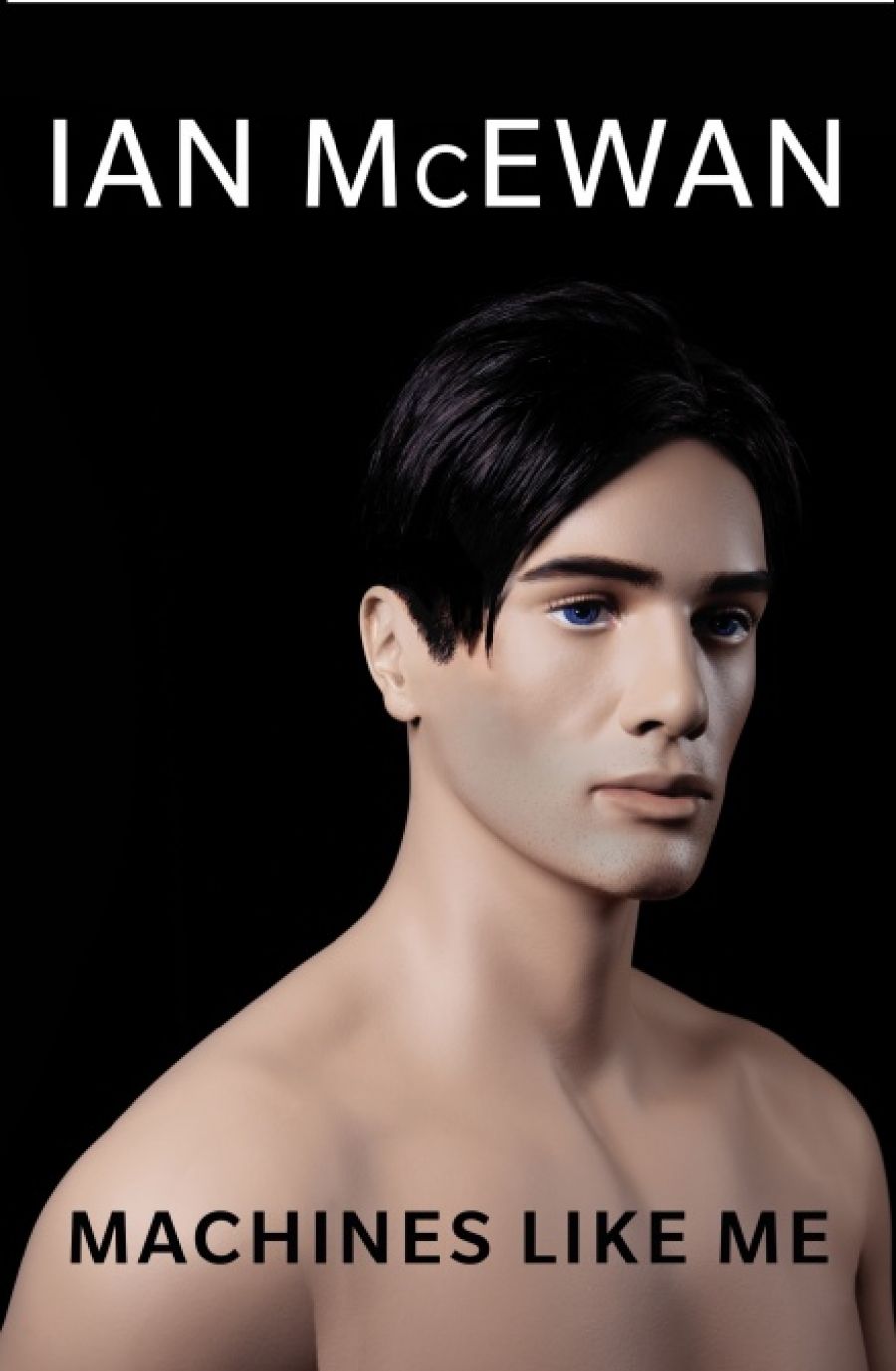
- Free Article: No
- Contents Category: Fiction
- Review Article: Yes
- Online Only: No
- Custom Highlight Text:
Ian McEwan’s new novel imagines an alternative history of England in the 1980s, one in which Argentina won the Falklands War and Margaret Thatcher was subsequently trounced at the polls. It also projects an alternative narrative of scientific progress, one in which the brilliant mathematician Alan Turing did not die in 1954 ...
- Book 1 Title: Machines Like Me
- Book 1 Biblio: Jonathan Cape, $32.99 pb, 320 pp, 9781787331679
This is a very fine novel, in some respects the best McEwan has published over the course of a long career, which is, of course, saying a great deal. One striking thing about the book is the way it pulls together many of the themes addressed by McEwan in his earlier work: the relation between the human imagination and science (as seen in Solar); the concern with national history and mythology, particularly military events such as Dunkirk (Atonement) or the Falklands War (The Ploughman’s Lunch); the uncomfortable frisson associated with interactions between individual consciousness and a ‘manufactured human’, something explored as far back as his early story ‘Dead as They Come’, where the well-heeled narrator falls in love with a dummy in a shop window. We get a summative sense in Machines Like Me of McEwan integrating all of these long-standing concerns into a multifaceted narrative that treats private, public, and political life as a continuum, raising questions not just esoteric or obsessive, as was sometimes suggested of McEwan’s earlier writing, but instead resonating with central social importance. The scientific expertise worked into McEwan’s text might not be handled quite as flamboyantly as in Richard Powers’s novels, but McEwan’s assimilation of complex material is woven more fully into a recognisable human environment, and this does make his work easier to read. There are many moments of fine comedy here, notably when Charlie’s prospective father-in-law mistakes him for the lifelike robot and suggests he should go downstairs to ‘plug yourself in’.
 Ian McEwan (photograph by Urszula Soltys)
Ian McEwan (photograph by Urszula Soltys)
The overall burden of this book involves analysing similarities and differences between humans and machines: hence the book’s full title, Machines Like Me and People Like You. Mary Shelley’s Frankenstein is duly cited here, and the conclusion of McEwan’s narrator, that robots lack a sense of imaginative play and the capacity to empathise with an abandoned child – another familiar McEwan theme, of course – is perhaps not so surprising. Alternative history might be seen as an inverted form of science fiction, a knife through butter where the very malleability of the narrative environment renders it immune from the harsher limits of realism that history itself imposes, and there were a few occasions here when I got the sense of McEwan enjoying himself rather too self-indulgently with these speculative scenarios, as with the line about the Beatles regrouping after twelve years and finding their comeback album, Love and Lemons, being widely derided for its ‘grandiosity’. Many of us who experienced the services of British Rail during this period might also consider the prospect of an omniscient, omnicompetent robot less improbable than the idea of a train journey from London Euston to Glasgow Central taking only ‘seventy-five minutes’.
Overall, though, McEwan’s novel has the same kind of thought-provoking charge that impels The Difference Engine (1990), a collaborative novel by Bruce Sterling and William Gibson imagining how nineteenth-century history would have been different if Charles Babbage’s pioneering computer had been systematically developed during Victorian times. The eerie plausibility of McEwan’s alternative history implies the contingent and reversible nature of all narratives, with one subplot involving Miranda, Charlie’s girlfriend, spending time in jail for perverting the course of justice in a good cause. The provisional nature of all received understandings of the past is implied as the story unfolds. More generally, the novel’s prognosis of how regular jobs based on principles of pattern recognition, such as those of doctors and lawyers, are fast disappearing as the efficiencies of an ‘ambulant laptop’ become increasingly humanised will strike many readers as only too plausible in our era of Google Home.
This is a conceptually ambitious novel, but also one that is stylistically amusing and well-controlled. The larger dimensions of science are incorporated here more seamlessly than in Solar, where the correlation between global warming and a philandering climate scientist did seem on occasions strained. McEwan represents Alan Turing here as having a ‘lean fitness in early old age that seemed derived less from healthy living than from a hunger to keep on creating’, and McEwan, who is the same age now as his reanimated hero, might be said to have a similar kind of hunger for creation in the literary field. Edward Said suggested that ‘late style’ for artists often involves negotiating unresolved and contradictory rather than serene or transcendent elements. Machines Like Me explores darker aspects of the post-humanist age with poise and skill.


Comments powered by CComment